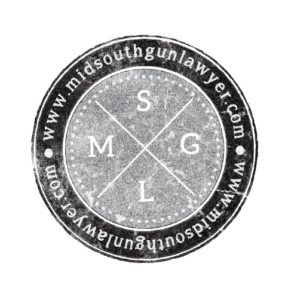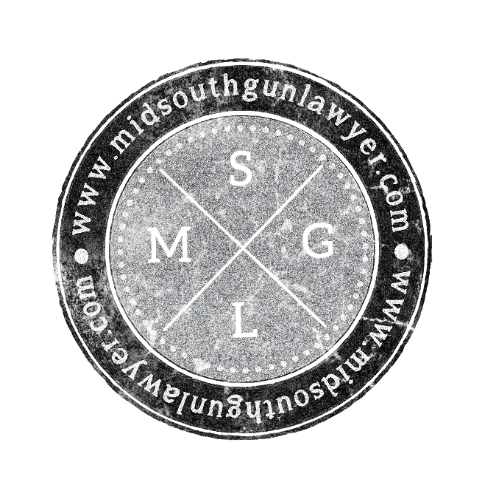Unless pardoned, expunged, or relieved from disability, no one convicted of a felony or a misdemeanor crime of domestic violence may possess a firearm or other designated weapon.[1] While Mississippi offers a procedure to restore a convict’s right to own a firearm by obtaining a “certificate of rehabilitation,”[2] it would appear there is no such relief from federal restrictions unless the person receives a full and complete pardon, an expungement of the conviction, or restoration of his civil rights from the governor.[3] This is because although a state conviction may be “rehabilitated,” the federal prohibition would still apply in the absence of a full restoration of a person’s civil rights, expungement of the conviction, or a pardon.[4]
I have received a lot of phone calls from individuals who received a “certificate of rehabilitation” but were then denied by a NICS background check. These individuals are frustrated that not only do they not have their full gun rights they also have wasted a significant amount of money on attorney fees and court costs. This is one reason it pays to contact someone with experience in gun laws.
18 USC § 921(20) provides: “Any conviction which has been expunged, or set aside or for which a person has been pardoned or has had civil rights restored shall not be considered a conviction for purposes of this chapter, unless such pardon, expungement, or restoration of civil rights expressly provides that the person may not ship, transport, possess, or receive firearms.”
“Civil rights” is widely accepted as the rights to vote, to hold office, and to serve on juries. U.S. v. Chenowith, 459 F.3d 635, 638 (5th Cir. 2006); Buchmeier v. United States, 581 F.3d 561, 564 (7th Cir. 2009), citing United States v. Williams, 128 F.3d 1128, 1134 (7th Cir.1997). If these three rights are restored, “then a conviction does not carry federal fire-arms disabilities.” Buchmeier, 581 F.3d at 564. A Mississippi “certificate of rehabilitation” is not a restoration of all those civil rights and thus may not satisfy the federal requirements.
Those convicted of a federal offense must seek federal restoration. While 18 U.S.C. § 925(c) does pay lip service to removal of the disability, the Attorney General has delegated the duty to the Bureau of Alcohol, Tobacco, Firearms and Explosive (BATFE). 27 C.F.R. § 478.144. Congress has steadfastly refused to fund this restoration program, thus effectively (and intentionally) denying it any effectiveness. Public Law 103-329 (1994) (“none of the funds appropriated herein shall be available to investigate and act upon applications for the relief from Federal firearms disabilities under 18 U.S.C. 925 (c)”). The Courts have refused to take up administration of the program. See U.S. v. McGill, 74 F.3d 64 (5th Cir. 1996) (“The court concludes “that relief from federal firearms disabilities for individuals under Sec. 925(c) is suspended by the last three appropriations acts” and that “Congress has suspended the relief provided in Sec. 925(c) for individuals.”)
What effect District of Columbia v. Heller, 554 U.S. 290 (2008) (recognizing 2nd Amend. an individual right) and McDonald v. Chicago, 561 U.S. ___ (2010) (incorporating 2nd Amend. to states) may have on this restoration program has yet to be seen. Cf. Supreme Court Decision May Permit Felons To Own Guns, http://www.nysun.com/national/supreme-court-decision-may-permit-felons-to-own/80870 (last visited August 7, 2010).
In Mississippi adult offenders may seek expungement of a single felony conviction with several exceptions. There must be at least five years after the successful completion of all terms and conditions of the sentence. § 99-19-71(2)(a).
[1] § 97-37-5(1) (“It shall be unlawful for any person who has been convicted of a felony under the laws of this state, any other state, or of the United States to possess any firearm or any bowie knife, dirk knife, butcher knife, switchblade knife, metallic knuckles, blackjack, or any muffler or silencer for any firearm . . .”); 18 USC § 922(g)(1) and (9) (“It shall be unlawful for any person—(1) who has been convicted in any court of, a crime punishable by imprisonment for a term exceeding one year; *** (9) who has been convicted in any court of a misdemeanor crime of domestic violence, to ship or transport in interstate or foreign commerce, or possess in or affecting commerce, any firearm or ammunition; or to receive any firearm or ammunition which has been shipped or transported in interstate or foreign commerce.”)
[2] § 97-37-5(3) (“A person who has been convicted of a felony under the laws of this state may apply to the court in which he was convicted for a certificate of rehabilitation. The court may grant such certificate in its discretion upon a showing to the satisfaction of the court that the applicant has been rehabilitated and has led a useful, productive and law-abiding life since the completion of his sentence and upon the finding of the court that he will not be likely to act in a manner dangerous to public safety.”)
[3] 18 USC § 922(g)(1). A “crime punishable by imprisonment for a term exceeding one year” is defined in 18 USC 921(20).
[4] As discussed, a state felony conviction, even where the convict is “rehabilitated,” still prevents firearm ownership or possession under federal law 18 USC § 922(g)(1) unless the conviction is expunged.

